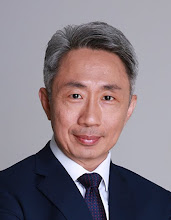The world's second-largest Starbucks operates in Shanghai.
The Reserve Roastery is the world's "highest-grossing Starbucks." Starbucks
currently has 3,300 stores in 141 cities in China and projects to have 6,000
stores in 230 Chinese cities by 2022. That's a pace of almost two new stores a
day!
It’s hard to imagine going to a Starbucks without thinking
of a cold Starbucks Frappuccino® blended beverage and the green straw. Starbucks
didn't invent the Frappuccino. An employee did.
Is there anything achievers (professionals who get serious stuff done) detest more than not being able to determine their own destiny? I don't think so
To want to do things that are significant, but not have the authority to act, is professional prison. To be certain, top talent won't settle for sitting around in prison. They flee. And fast. Leaving entire teams comprised of people who will tolerate being disempowered.
People ultimately resent leaders who creates a pressurized workplace that undermines autonomy. Driving for results by adding pressure and tension blocks people's creativity and ability top focus, leaving them feeling inadequate or ineffective at coping with the circumstances - which undermines competence.
We all know of a "Boss-Zilla," - leaders whose tactics include persistent psychological abuse as such using aggressive language and tone, criticizing unfairly, blaming, applying rules inconsistently, stealing credit, making unreasonable demands, issuing threats, insults and accusations and assigning pointless tasks.
That kind of leadership is not sustainable. It might produce decent performance in the short term, but there's no way that fear leads to any sustainable result in the long run.
As a leader, I'm far from perfect. At the beginning of my career, like many young leaders, I thought my role was to tell the team how to work, and theirs was to carry out my directions. There have been plenty of times in my career when I have allowed my hard-charging energy to bring down the people around me. It has taken me years to be more mindful. As time went by I learned to control my temper. I find I need daily practice. My dispositional nature is to be quick to judge and react. I get a rush from the self-righteous indignation that comes from knowing I am right and someone else is wrong.
Eventually I realized that a great performance would happen only when the motivation sprang as much from them as from me. I learned to see my job as simply creating an environment where that could happen.
If a leader wants his people to truly own the work, then he has to be willing to let go of some control. You can force compliance with your directions, you can require obedience, but you can't mandate enthusiasm, creativity, fresh thinking or inspiration. If you value that, then people must feel the ownership of the work, and the leader must cede some control to them.
I have witnessed the transformation of team members in the environment I create today, one that's open and safe, where they're allowed to be themselves and have a point of view and take risks. What happens is I have a team that is more centred, committed and willing to take the hill. I've got a team that can overcome adversity because they're a lot more resilient.
It just makes me feel good.









